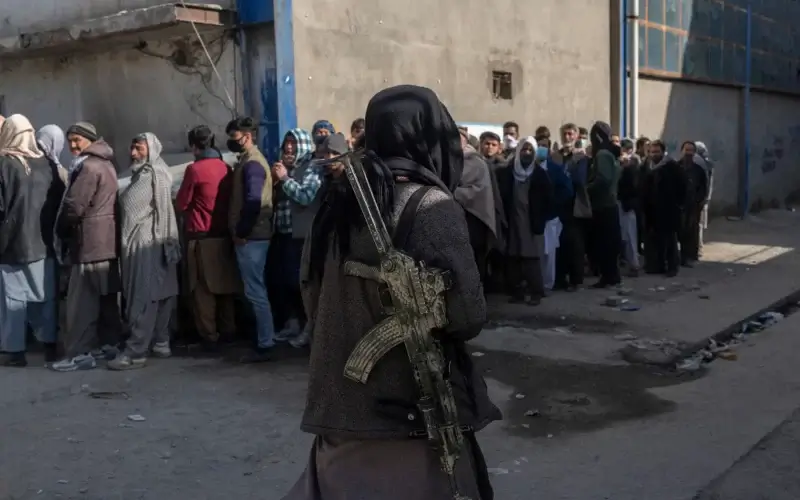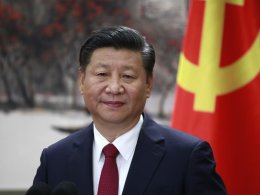As the power vacuum left by the U.S. following the Biden administration’s hasty withdrawal last year continues to be filled by some of America's adversaries, Afghanistan's former ambassador to Washington said Monday the relationship between Beijing and the country's Taliban rulers is an evolving one, describing it as a push-and-pull type, especially given China's fears of extremism spreading.
Ambassador Roya Rahmani made the remarks at the annual Milken Institute Global Conference in Los Angeles. When asked about China's relationship with Afghanistan, she noted, "China is continuing to act the same way that they did. They (are) even demonstrating a little bit to be closer to the Taliban." Rahmani was her country's ambassador to the U.S. until a month before last year's withdrawal.
She noted that China was one of the countries that accepted the Taliban diplomatically and said the Afghan embassy in China was "to be occupied," by representatives of the Taliban. Rahmani said Beijing's main concern was the spread of extremism crossing in from the border. She noted that China’s relationship "is probably less for the transactions and more for their concern than worry because they are also very cognizant of the potential threat of the spread of extremism that can emanate from Afghanistan. They are very nervous about it, and this is what defines their relationship. So it's a pull and push, and they want to make sure that they keep them in an arm's length to ensure that no big threat is facing them through the Xinjang region."
Ever since the Taliban's takeover of the country following the Biden administration’s decision to completely pull all U.S. troops from the country last August, the country has been facing economic collapse, and with the Taliban hunting down opponents and trampling on women and minority rights, the country's rulers have been looking for friends.
William Lee, a China expert and chief economist at the Milken Institute, told Fox News Digital that China has a long-standing policy of wanting to maintain political and social stability for the country. "China's interest in Afghanistan is not just one displacing the U.S., but it is a long-standing security problem."
Lee continued, "They want to make sure that there are no threats to domestic stability coming from its Muslim minority population and one of the biggest fears within the Chinese government would be that the Muslim minorities would be getting aid from terrorist sponsoring countries in the Middle East and countries in the surrounding neighborhood. That would fuel the unrest that (its) Muslim population already feel."
That Muslim minority population is mostly dominated by Uyghur Muslims in Xinjiang province, where China has been accused of genocide against the population. According to reports, up to three million Uyghur Muslims have been taken from their homes since 2017 by authorities and put into prison camps, which Beijing has claimed are re-education camps.
Lee, who had previously set up the IMF's office in Hong Kong and worked as its representative there in the early 2000s analyzing China's relations with the U.S. and the rest of the world, warned that the sudden withdrawal resulted in the U.S. losing "a great opportunity to have a listening post in that neighborhood by leaving Afghanistan, because the loss of military, intelligence, political intelligence and social intelligence is, to me, probably the one of the most devastating consequences of our failure in Afghanistan."
Gordon Chang, a China expert, told Fox News Digital he was not surprised by this development between the two countries: "It looks like the so-called Red-Green alliance is thriving in Central Asia. Evildoers like to work together. So should we be surprised that China’s Communist Party and Afghanistan’s Taliban are cooperating even more closely than before?"
Chang, a distinguished fellow at the Gatestone Institute, noted Beijing’s role during the time of the previous non-Taliban rulers. "During the insurgency against the American-supported Afghan government, China supplied arms to the Taliban. Those weapons were used to kill American and NATO troops. Yes, China was working with our enemy then. Now, China is continuing to work with that enemy," Chang concluded. "By the way, it was strategically and morally wrong for Washington not to impose costs on Beijing for helping to take American lives."










